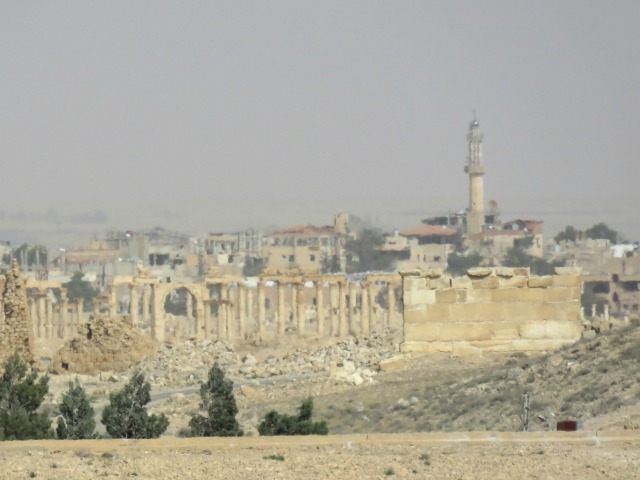Forces loyal to Syrian dictator Bashar al-Assad seized back the ancient city of Palmyra in northern Syria from Islamic State [ISIS/ISIL] jihadists who conquered the area last year.
The New York Times reports:
The head of Unesco, the United Nations agency that had designated Palmyra’s ruins a World Heritage site, hailed the “liberation” of the city from the militants in a statement issued last week as Syrian troops were advancing. On Sunday, Ban Ki-moon, the United Nations secretary-general, called the retaking of the ancient city “fortunate” and said the Syrian government could now protect and restore the sites, wire services reported.
Despite the various cities and towns conquered by ISIS, the fall of Palmyra to the jihadist group drew international outcry.
“The extremist group, also known as ISIS and ISIL, imposed its familiar, merciless scriptures on residents, including summary executions, and it destroyed some of the city’s spectacular ruins, the remains of a civilization that 2,000 years ago was a crossroads among Roman, Persian and local cultures,” notes the Times.
Maamoun Abdul-Karim, head of Syria’s antiquities and museums, told the Associated Press (AP) that explosives experts have removed 150 bombs so far planted by ISIS inside the archaeological site in Palmyra.
The archeological team was unable to reach some sites because they were surrounded by “hundreds” of mines.
According to the Syrian Observatory for Human Rights, which tracks the Syrian conflict using a network of sources on the ground, the majority of ISIS fighters had been pushed out, with many of them killed, by the Assad Army and its allies, including the Russians.
“The withering defeat underscores the Islamic State’s broader struggle to retain territory it has seized in Syria and Iraq,” notes the Times.
AP reports:
The Sunni extremist group, which has imposed a violent interpretation of Islamic law across the territory it controls in Syria and Iraq, claims ancient relics promote idolatry. But, it has allegedly profited from selling looted antiquities.
That may explain why the militants killed the archaeological site’s 81-year-old director, Khaled al-Asaad, who was beheaded last August after he reportedly refused to say where authorities had hidden some of the town’s treasures.
ISIS has reportedly destroyed many of the archeological sites and historical temples in Palmyra. The jihadists consider such sites to be centers of idolatry.

COMMENTS
Please let us know if you're having issues with commenting.